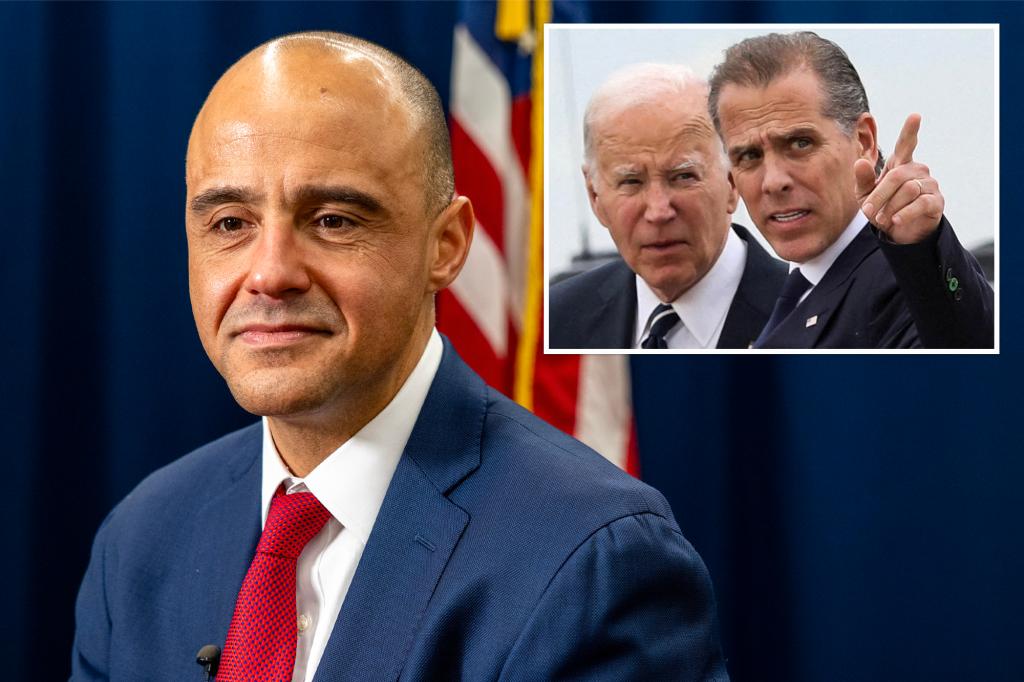Paragraph 1: The Resignation of Matthew Graves
Matthew Graves, the US Attorney for the District of Columbia, announced his resignation effective January 16th, 2025, just days before the inauguration of President-elect Donald Trump. This departure, while framed as voluntary, comes amidst a backdrop of significant controversy surrounding Graves’ handling of several high-profile cases, most notably his decision not to pursue criminal charges against Hunter Biden, the son of President Joe Biden, on tax-related offenses and his approach to prosecuting local crimes in the District. Graves expressed gratitude to Delegate Eleanor Holmes Norton, President Biden, and Attorney General Merrick Garland for their support during his tenure.
Paragraph 2: The Hunter Biden Controversy
A significant portion of the controversy surrounding Graves centers on his role in the Hunter Biden investigation. IRS whistleblower Gary Shapley alleged that Graves refused to cooperate with Delaware US Attorney David Weiss on tax charges against Hunter Biden. This refusal allegedly allowed the statute of limitations to expire on potential charges relating to Biden’s tax non-payment during his father’s vice presidency. Graves defended his decision before Congress, arguing that such inter-office cooperation is rare and likened it to "buying a mansion without an inspection." He claimed that taking on a case mid-investigation would be like inheriting unforeseen problems.
Paragraph 3: Graves’ Justification and the Aftermath
Graves admitted during congressional testimony that he did not personally review the underlying case materials related to Hunter Biden’s alleged tax violations before declining to partner with Weiss. He stated that he instructed his office not to pursue involvement as local counsel. Following Graves’ refusal to prosecute in D.C., Weiss was appointed special counsel, enabling him to file tax charges against Hunter Biden in Los Angeles for non-payments spanning from 2016 to 2019. Hunter Biden eventually pleaded guilty to $1.4 million in tax fraud and was also convicted on three gun felonies in a separate Delaware case. President Biden subsequently issued a pardon for his son on December 1st.
Paragraph 4: The D.C. Crime Wave and Prosecution Rates
Beyond the Hunter Biden controversy, Graves also faced scrutiny for his handling of local crime in the District of Columbia. The U.S. Attorney’s office in D.C. uniquely prosecutes both federal and local offenses. During Graves’ tenure, the city experienced a significant surge in violent crime, and critics pointed to what they viewed as a low prosecution rate for arrests made in connection with these crimes. In fiscal year 2022, Graves’ office declined to charge suspects in a staggering 67% of cases involving an arrest.
Paragraph 5: The Crime Lab’s Impact and Declining Prosecution Rates
Graves attributed the high non-prosecution rate to the fact that the District of Columbia’s crime lab lost its accreditation, impacting the admissibility of evidence in court. He argued that this situation significantly hampered his office’s ability to prosecute cases effectively, stating that there were numerous instances where they wished to proceed but were unable to due to the lack of reliable forensic evidence. In fiscal year 2023, the non-prosecution rate decreased to 56%, a change Graves attributed to improvements in the crime lab situation. He emphasized the importance of holding individuals accountable for criminal conduct.
Paragraph 6: Graves’ Legacy and Departure
Matthew Graves’ resignation marks the end of a tumultuous tenure as the U.S. Attorney for the District of Columbia. His decisions regarding the Hunter Biden investigation and the prosecution of local crimes have drawn significant criticism and fueled intense political debate. While Graves maintains that his actions were justified and based on prosecutorial discretion, his legacy will undoubtedly be shaped by these controversies. His departure just before a change in presidential administrations raises further questions about the timing and motivations behind his decision. The incoming administration will now face the task of appointing a new U.S. Attorney to navigate the complex legal landscape of the nation’s capital.

